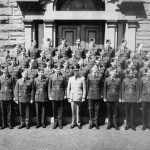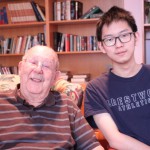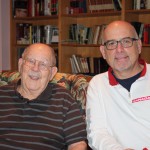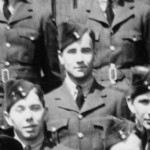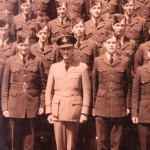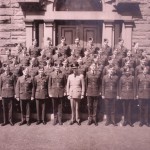Stan Dinney was born in New Brunswick in 1922, near Moncton. His father moved the family to Windsor, Ontario for a few years when Stan was young, but he took the family back to Moncton with the coming of the Great Depression, when he secured employment at a family lumber mill. Stan enjoyed his early life and teen years in New Brunswick, and in particular he excelled at baseball. With the coming of the war, his athletic hopes were dashed though; he decided to join the RCAF, and by 1941 his training regimen was underway. Stan was moved to various parts of Canada, where the British Commonwealth Air Training Plan put him through the motions, and Stan was prepared to be an armourer and member of the ground crew. He was shipped overseas in 1941, and attached to numerous squadrons in Great Britain, where he serviced Beaufighters and Mosquitoes. Stan remembers coming under attack by a Junkers 88 on one occasion, the closest he came to enemy fire. Rather suddenly Stan was moved at the midpoint of the war, and after a journey through the Mediterranean and Indian Ocean, Stan was deployed on Ceylon, to the base at Koggala. There he serviced the Catalina Flying Boats, playing a crucial role in the RAF reconnaissance flights over the Asian theatre of war. Stan was there until April 1945, when he was returned to Canada. He ended the war by demobilizing the RCAF’s Lancasters, stripping them of their guns.
Videos
Click next video below to keep watching
- 1. Stan Dinney - Early Life in New Brunswick and Ontario.mp4
- 2. Studies and Pastimes.mp4
- 3. Life during the Great Depression.mp4
- 4. Looking for Recruits.mp4
- 5. The RCAF.mp4
- 6. Training and the Troopship.mp4
- 7. Arrival in Britain.mp4
- 8. From Drem to Ayr to England.mp4
- 9. Summer 1943; Bombay.mp4
- 10. To Colombo.mp4
- 11. Time in Ceylon.mp4
- 12. A Train Ride.mp4
- 13. Keeping in Touch with Family; Homecoming.mp4
- 14. The End of the War.mp4
